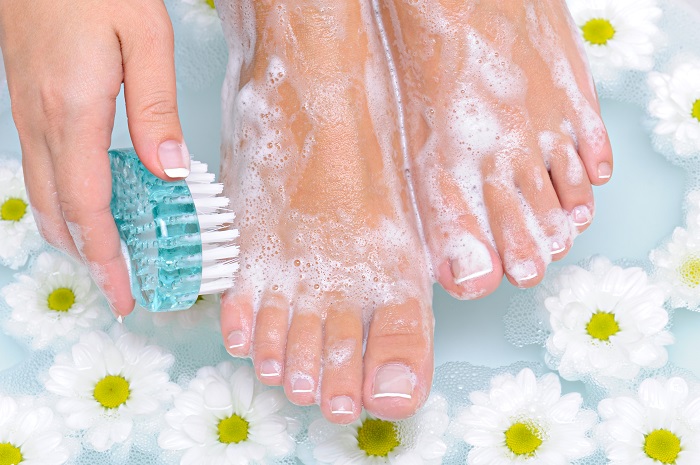Phone: +44 (0)20 8492 1600
Need help or have a question?
Contact us at: [email protected]
The main cause of foot odour or smelly feet is sweating. Excessively sweaty feet is a complaint known as Hyperhidrosis. The foot has 250,000 sweat glands, therefore feet tend to perspire more than other parts of the body. Sweat itself is odourless, but it creates an environment for bacteria to grow and produce unpleasant odours. Odour is often created when sweating increases and shoes and socks have inadequate ventilation for many hours.

Foot odour, often a source of discomfort and embarrassment for many, is primarily caused by sweating. This article dives deep into the reasons behind smelly feet, how to prevent it, and effective solutions to keep your feet fresh.
The main culprit behind foot odour, or smelly feet, is excessive sweating, a condition known as Hyperhidrosis. The human foot is densely packed with sweat glands—about 250,000 of them—making it one of the body parts that perspire the most. While sweat itself is odourless, it creates a perfect environment for bacteria to thrive, leading to the production of unpleasant odours.
Increased sweating and the lack of adequate ventilation in shoes and socks for extended periods can exacerbate foot odour. Understanding this is crucial in tackling the issue effectively.
Hyperhidrosis refers to the condition where an individual experiences abnormally increased sweating, not necessarily related to heat or exercise. This excessive sweating can lead to several challenges, including the issue of foot odour, as it provides an ideal setting for bacteria to grow.
Combating foot odour involves a multi-faceted approach, focusing on both prevention and treatment solutions.
Regular washing of feet with soap and water is fundamental. Ensuring your feet are completely dry before putting on socks and shoes is equally important.
Choose shoes and socks that allow your feet to breathe. Materials like leather and natural fabrics work best in providing adequate ventilation.
Giving your shoes time to air out between wears can prevent the accumulation of sweat and bacteria, reducing the potential for odour.
Should you find these measures insufficient in controlling foot odour, or if you suspect you’re suffering from Hyperhidrosis, consulting a healthcare provider is recommended. They can offer treatments such as prescription antiperspirants, oral medications, or even surgical options in severe cases.
Foot odour is a common issue that affects many, but with the right strategies in place, it can be effectively managed or even prevented. Emphasising foot hygiene, choosing appropriate footwear, and considering medical advice when necessary are key steps towards keeping your feet fresh and odour-free.